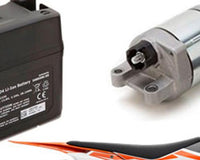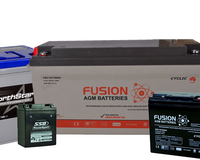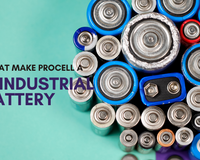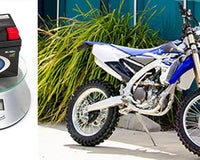Table of Contents
Lithium-ion batteries offer some distinct advantages and improvements over other forms of battery technology. Used in many devices today, they provide good performance, charges faster, and lasts longer compared to other types of batteries.
Lithium-ion is a popular choice for portable devices because they offer distinct advantages and improvements over other battery technologies. Like all technology though, there is a difference in how well each one works with certain applications — it's important to understand not only what makes them good but also their downside.
Lithium-Ion Battery Pros
1. Lithium-ion batteries are the best type of battery to use in your device since they don't require any extra maintenance. Unlike other types of batteries that may need periodic discharge or topping off with fluid and priming before you can use them (and who has time for that?), these bad boys will just work every single time without fail!
2. A lithium-ion battery can be really great when it comes to loading characteristics. They provide a fairly constant 3 volts per cell before they start losing their charge as you use up all of your last charges, which is perfect!
3. Lithium-ion batteries come in many different types and sizes, which makes them convenient for use in various applications. The rechargeable battery you find inside your smartphone has very specific power requirements versus something like an electric vehicle - so it's important that before buying or borrowing certain devices we know what type of lithium-Ion they have.
4. A rechargeable cell may require priming when it first receives a charge. Lithium-ion, on the other hand, has no such requirement, as they are ready to go from the start; one advantage that this has on your electric car's performance might be worth considering!
5. Lithium-ion batteries offer twice the energy density of nickel-cadmium, making their charging capabilities much more robust. This means that a single lithium-ion battery can power an electronic device for up to three times as long before needing recharging compared with two identical counterparts using NiCd or lead-acid technology - this is important in devices such as smartphones and laptops where you don't want your battery dying out just when it becomes essential.
Lithium Battery Cons
1. Lithium-ion batteries can be tricky to handle if you don't know of their flaws. One problem with these types is that they lose power faster than other battery types, such as nickel-cad or NiMh ones which typically have self-discharge rates of less than 5%.
2. The major disadvantage to lithium-ion batteries is their ageing. The battery can only withstand so many charge-discharge cycles before capacity falls and this could be due in part to the number of times it's been charged or discharged; typically a li-ion setup will need at least 500 more charges than what you put into them just for safety reasons!
3. The lithium-Ion polymer(LiPoly) cells were created so you don't need any external circuits but still maintain long life cycle times due t° the high energy density delivered by each cell!
4. The other problem with these types of cells, especially those found within consumer electronics such as cell phones, smartwatches etc., has got to do with time-related factors — namely how quickly they age if left unused over several months without use.
5. Lithium-ion batteries are a type of rechargeable battery that can be used for mobile devices and other portable electronics. The biggest downside to this kind of power source? It needs protection from being overcharged or discharged too much, which usually means including built-in circuitry in both the device itself as well as inside its voltage regulation system (also sometimes called "protection").

What to Do if You Have a Fire Involving a Lithium-Ion Battery
You don't want to be caught up in a fire! If your lithium-ion battery overheats or hisses, you should move away from flammable materials and put it on a non-combustible surface. You might also place outside for at least 6 hours until the flames have died down enough so that there is no more risk of combustion happening.
A small Li-ion fire can be handled just like any other combustible. For best results use a foam extinguisher, CO2 or ABC dry chemical powder with powdered graphite to put out the flames quickly before they spread even more. Halon is also used as an effective way of putting out fires in most cases.

How to Store Lithium-Ion Batteries Safely
Batteries should always be stored in a cool, dry place away from heat and sunlight. If your home does not have adequate ventilation or you're storing batteries for an extended period of time (more than six months), it's best to store them at 59℉ with relative humidity below 60%.
Boosting your home security is not just about installing alarms or motion sensors. You need to make sure the batteries in these devices are running at full strength and stored safely and away from children.
Get the best batteries for your business and professional needs here at Battery Specialists. We’re the largest battery stockists in Australia,
Get in touch with us today for all your battery needs.
Or if you want to learn more about lithium batteries read our article here.













